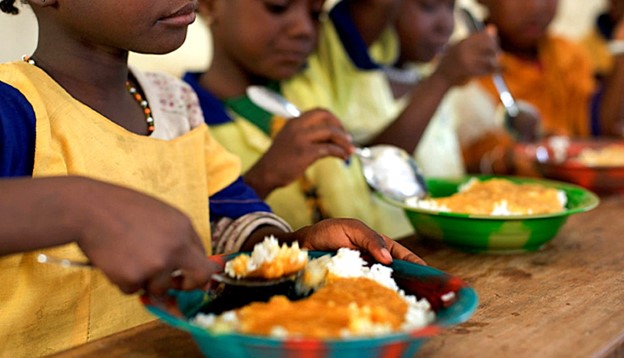By Johnathan Paoli
The Department of Basic Education has raised concerns over a surge in reported food poisoning incidents affecting school-aged children.
Recent cases, occurring primarily during school hours, have disrupted teaching and learning, as schools have had to shift their focus to providing medical assistance to affected learners.
On Sunday, basic education spokesperson Elijah Mhlanga said the negative psycho-social impact these incidents are having on both students and teachers, highlighting that schools should be safe havens for children.
The alarming trend appears to be linked to food items purchased from local vendors and spaza shops near school premises.
Mhlanga said while some media outlets have incorrectly associated these food poisoning cases with the National School Nutrition Programme, the department has clarified that no evidence supports this claim.
He said the NSNP plays a crucial role in addressing hunger and malnutrition among learners, providing nutritious meals to approximately 9.7 million students on school days, with a budget allocation of R9.8 billion for the 2024/25 financial year.
“With that said the DBE has the responsibility to intensify its efforts to improve food safety and hygiene practices and to raise awareness,” Mhlanga said in a media statement.
The Department has outlined five essential hygiene principles: maintaining cleanliness, separating raw and cooked foods, thorough cooking, keeping food at safe temperatures, and using safe water and materials.
Mhlanga said adherence to these guidelines is crucial in ensuring the health and safety of students consuming school meals.
He noted that many reported cases stem from food purchased through informal vendors rather than school meal programs.
Additionally, many tuck shops and vendors operating on or near school grounds do not comply with NSNP guidelines, further exacerbating the issue.
To tackle these challenges, Mhlanga has called on school governing bodies and management teams to take a proactive role in promoting the sale of healthy snacks and beverages.
Schools are encouraged to maintain a database of local food vendors and engage in discussions about the nutritional value of their offerings.
“Parents, guardians and caregivers are urged to be on high alert and to monitor the food items children consume and most importantly to verify the source of such items,” he said.
Mhlanga said the department has also extended its condolences to families affected by tragic incidents involving children who have succumbed to food poisoning, underscoring the urgent need for community involvement in safeguarding the health of young learners.
As the department continues to collaborate with various government agencies to address this pressing issue, it remains committed to ensuring the safety and well-being of all students in the education system.
INSIDE EDUCATION







